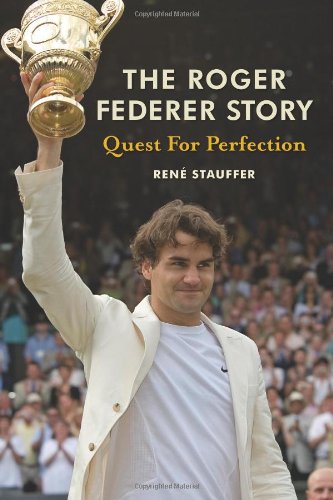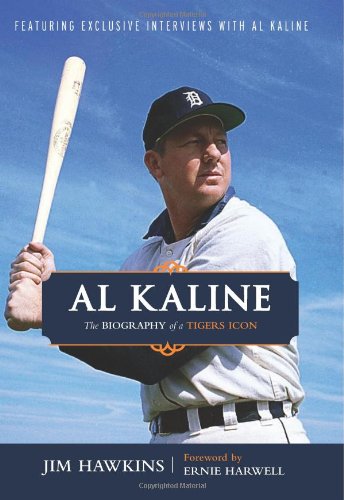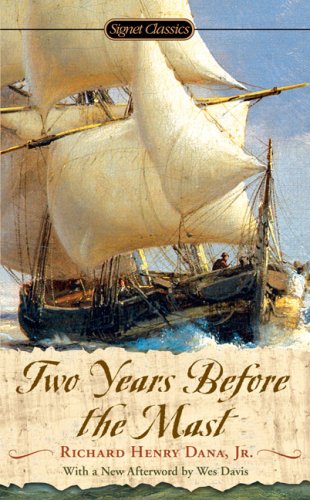When the Game Was Ours Review

Growing up as kid in a Houston suburb, my first memory of the NBA was watching the Houston Rockets play the Boston Celtics in the 1986 Finals. As far as I know, those were the first pro basketball games I ever saw. As I watched the Rockets get mandhandled, without knowing anything about the Boston team, I began to hate them. Ainge, McHale, Johnson, Parrish, and of course, Bird. As I watched basketball more and more, and knowing the history between the Rockets and the Lakers, I began to hate the Showtime teams of Magic Johnson just as much. I'm pretty anti-establishment and that's what the Lakers and the Celtics were back in the 80s. The elite, the status quo. Two giants fighting with each other with the rest of the NBA as spectators. I do seem to remember some music video with Magic and Bird as well, with the message being that it was just a foregone conclusion that they would meet in the Finals AGAIN. Times have changed, and I pretty much still hate the Lakers. But I respect the Celtics.
When I picked up this book, I knew I was gonna get hit with waves of nostalgia, just thinking of those times when I first started watching basketball. After the 1986 Finals, it was pretty much a part of my life. I knew Magic and Bird were rivals, but when I started watching their epic battles were pretty much on the downslide. They were kinda like the equivalent of Lennon and McCartney in that they saw each other as their only competitor. Normally, that might be a bad thing, but they were such bright stars, such talents, that they pushed each other to new heights. And most of this happened before they were even friends. It was like they were shadow boxing each other when they were training and when they were on the court, even when they weren't playing each other. I didn't know much of the background of the relationship between the two. I think I was only dimly aware of their teams playing each other for the college championship. So this book was quite the education for me. The turning point of the book is when Magic comes to Bird's hometown to film a Converse commercial. It is only then that the two men compare notes on not only basketball, but their lives. It was a bond that became personal after it had already been professional. Another interesting bit is when Magic, Bird, Charles Barkley, and Michael Jordan argue over a game of pool during the 1992 Olympics about the best NBA teams ever. Quite interesting.
I really enjoyed this book. It was informative but never dry. Both Magic and Bird seem very forthcoming about their family background, what drove them to succeed, and what they wanted out of the NBA. Really, in the end, what they both wanted was to win.
When the Game Was Ours Feature
- ISBN13: 9780547225470
- Condition: New
- Notes: BUY WITH CONFIDENCE, Over one million books sold! 98% Positive feedback. Compare our books, prices and service to the competition. 100% Satisfaction Guaranteed
When the Game Was Ours Overview
From the moment these two players took the court on opposing sides, they engaged in a fierce physical and psychological battle. Their uncommonly competitive relationship came to symbolize the most compelling rivalry in the NBA. These were the basketball epics of the 1980s--Celtics vs Lakers, East vs West, physical vs finesse, Old School vs Showtime, even white vs black. Each pushed the other to greatness--together Bird and Johnson collected 8 NBA Championships, and 6 MVP awards and helped save the floundering NBA at its most critical time. When it started they were bitter rivals, but along the way they became lifelong friends.
With intimate, fly-on-the-wall detail,
When the Game Was Ours transports readers to this electric era of basketball and reveals for the first time the inner workings of two players dead set on besting one another. From the heady days of trading championships to the darker days of injury and illness, we come to understand Larry's obsessive devotion to winning and how his demons drove him on the court. We hear him talk with candor about playing through chronic pain and its truly exacting toll. In Magic we see a young, invincible star struggle with the sting of defeat, not just as a player but as a team leader. We are there the moment he learns he's contracted HIV and hear in his own words how that devastating news impacted his relationships in basketball and beyond. But always, in both cases, we see them prevail.
A compelling, up-close-and-personal portrait of basketball's most inimitable duo,
When the Game Was Ours is a reevaluation of three decades in counterpoint. It is also a rollicking ride through professional basketball's best times.
When the Game Was Ours Specifications
Amazon Exclusive: Bill Walton Reviews When the Game Was Ours
Bill Walton played in the NBA for 13 years, and in 1996, was named one of the top 50 players in NBA history. He's been an analyst for CBS Sports and NBC Sports, and since 2002, he's been a game analyst for ESPN NBA telecasts. Read his guest review of When the Game Was Ours:
 Larry Bird and Magic Johnson are transcendent, iconic and timeless standard bearers of excellence who changed "The Game" forever, always bringing out the best in each other and never failing to put a smile on all our faces.
Larry Bird and Magic Johnson are transcendent, iconic and timeless standard bearers of excellence who changed "The Game" forever, always bringing out the best in each other and never failing to put a smile on all our faces.
I was one of the lucky ones. I had the incredible good fortune to have witnessed firsthand the Bird/Magic rivalry. It was an intense and constant thing for us all. But even I didn't realize how powerful their connection was until I read
When the Game Was Ours, a riveting and page-turning masterpiece that could only be written with the help of someone like Jackie MacMullan, who was there every step of the way and who sensed there was a whole lot more to their story than what happened on the court or got played over and over again on the highlight reels. In this book, Larry and Magic tell stories like they never have before. I was enthralled, page after page. Theirs was a unique relationship. They were polar opposites, but in ways few of us realized they were very much the same. They both wanted the same thing, day in and day out--to win. And did they know how to win.
When the Game Was Ours perfectly captures the defining moments of their lives from the very beginning of their fiercest of rivalries through their constantly evolving historical relationship and friendship right up to the present. This epic tome is the capstone of their landmark careers. It is also so much more than anyone could ever dream for.
When the Game Was Ours brilliantly explains why "The Game" will always belong to Larry and Magic.--
Bill Walton(Photo © Joe Faraoni/ESPN)
Amazon Exclusive: A Q&A with Larry Bird and Magic Johnson

Amazon.com: It was interesting to learn that a fast break during an exhibition game sparked the start of your long friendship. Talk about that play and how it set the stage for future Bird vs. Magic battles.
Larry Bird: What I remember about that play was we had the defender spinning around like a top because we moved the ball so quickly. I had never played with anyone who could pass the ball like Magic. I was blown away by the things he was doing on the court. But once we were done as teammates on that All-Star team, I moved on. And, a year later, when we played against each other for the NCAA championship, I treated him like he was just another guy. I wasn't too big on being friendly with people I was trying to beat. I think that upset him, but I didn't care. I was always taught, "Don't talk to the enemy."
Earvin "Magic" Johnson: I already knew about Larry before we played in the World Invitational Tournament. I was dying to meet this guy who went to Indiana, quit school, worked on a garbage truck, then came back and started putting up really big numbers for Indiana State. We played on the second team together during those exhibitions, and the way we moved the ball, we were better than the starters! That one play was so fast, so amazing, those Russian players had no idea what hit them. We didn't spend a whole lot of time together off the court, because Larry kept to himself, but I was real excited the following spring when I realized our Michigan State team was going to play his Indiana State team for the NCAA championship. I went over to say hello to him at the press conference a day or two before the game, and he totally blew me off. I couldn't believe it. I left thinking, "That Larry Bird, he's kind of a jerk." And the rivalry was on.
Amazon.com: Where did you each develop your love for the game?
Bird: My two older brothers, Mike and Mark, played basketball all day long. They were bigger and stronger than me, so they were better in the beginning. But I loved the way it felt when the ball dropped through the strings, so I was out there all the time, day and night, working on my game. I wasn't going to stop until I could beat my brothers. And by the time that happened, I was hooked on the game. I couldn't live without it.
Johnson: I honestly can't remember a time when basketball wasn't a part of my life. I grew up in a big family, so we played all kinds of sports, including basketball. I loved the way the ball felt in my hands. I took my ball with me everywhere--to school, to the store, to the school dances. People in Lansing, Michigan, got used to seeing me walking down the street dribbling my ball. I wasn't going to stop until I was in the NBA.
Amazon.com: If you could each replay one game from the past, which would it be and why?
Bird: I'd like to go back to the 1987 Finals, to the game when Magic sunk his junior junior hook. It was down to the final seconds, and Magic had Kevin McHale isolated out on the wing, and when he drove past him to the basket, our center, Robert Parish, came over to help, and I came over from the weak side, but probably a second too late. I never expected Magic to shoot a hook. I had never seen him do anything like that before. People forget that even after that basket, we still had a chance to pull it out. I got a great look from the baseline in the final seconds, but the shot rolled off. If I could go back and replay that game, maybe we would have won it, and possibly the series as well.
Johnson: That's easy. I'd go back to Game 2 of the 1984 Finals, when we were in Boston and about to take a 2–0 lead in the series, and instead I called a time-out in the final seconds. If I hadn't called it, we would have run out the clock and taken total command of the series. Instead, because of the time-out, the Celtics were able to set their defense, and James Worthy's pass was intercepted by Gerald Henderson. That was one of the most disappointing losses of my career, and I've never forgotten it.
Amazon.com: One of the most powerful moments in the book surrounds November 7, 1991--the day Magic announced he was HIV positive. Magic, why was it so important to you to contact Larry before the news hit?
Johnson: You've got to understand that by this point, we're like Joe Frazier and Muhammad Ali. Nobody talked about one of us without mentioning the other. We were that connected. I knew the minute the news hit, people would be flocking to get a reaction from both Larry and Michael Jordan, so I felt I had to give them some warning. Also, by then, Larry and I had developed a bit of a relationship. In spite of all our battles, I felt a real affection for him. He needed to know, and he needed to know from me.
Amazon.com: Larry, what do you remember most about that day?
Bird: The feeling I had in the pit of my stomach. It was a horrible, awful feeling. I just remember lying in my room, trying to take a nap, and all I could think about was that Magic would be dead soon. At that time, we didn't know much about HIV. We all just assumed he had been given a death sentence, and that was really shocking to think about.
Amazon.com: How did winning a gold medal with the 1992 Dream Team compare to winning an NBA championship?
Johnson: That whole experience in Barcelona was amazing, fantastic. At that point, I was technically retired from the NBA because of my HIV illness, and I missed basketball so much. To be out there playing for my country, not to mention alongside Larry and Michael Jordan and Charles Barkley and Patrick Ewing, was one of the biggest thrills of my life. I savored every single moment of it.
Bird: It was a little harder for me because my back was in such bad shape, and sometimes it was hard for me to enjoy it because of the pain. I just wanted to get into a game and make a contribution and be able to say I did it, that I was part of an Olympic team. And once I did that, I was happy. My goals were pretty realistic in Barcelona. Still, I didn't realize how amazing it would feel to be up on that medal stand, alongside Magic, John Stockton, Patrick, and all the guys, with that gold medal around my neck. That is one special memory.
Amazon.com: Who carries the NBA torch today?
Johnson: There's some great young talent out there, but I've got to choose the Laker, Kobe Bryant. I think he proved in the 2009 NBA championship that he learned how to balance his own individual skills with those of his teammates. That was a big step forward for him. What I liked best about Kobe was watching him enjoy himself. The game is supposed to be fun. Larry and I never lost sight of that.
Bird: You certainly couldn't go wrong choosing Kobe, but I'm a LeBron James man. He is so strong. He's also fearless, and he's convinced he can do anything. That's what stands out to me. He still has some steps to take, like bringing the same effort defensively every night that he brings on the offensive end, but he has all the tools to accomplish that. He's going to have a long, successful career that will include some championships of his own.
Amazon.com: If you both laced 'em up right now, who would win one-on-one in H-O-R-S-E?
Bird: Nobody beats me in H-O-R-S-E. Besides, Magic can't shoot.
Johnson: Larry, you'd have no chance against me one-on-one. I've got too many ways to beat you. Plus, as slow as I am, I'm still faster than you.
(Photo © Marc Serota RRA Media)
Photographs from When the Game Was Ours
(Click on images to enlarge)
 |  |  |  |
| Magic and his high school coach George Fox | Larry and his mother Georgia in Salt Lake City, 1979 | Magic and Larry in a pregame meeting of team captains | Larry and Magic for a NBA promotional campaign |
 |  |  |  |
| Larry and Magic in between takes of the 1985 Converse commercial | Larry, Commissioner David Stern and Magic | Larry, Michael Jordan, and Magic in their Dream Team uniforms | Magic congratulates Larry at his retirement ceremony |
*** Product Information and Prices Stored: Jul 28, 2010 13:01:06

 Larry Bird and Magic Johnson are transcendent, iconic and timeless standard bearers of excellence who changed "The Game" forever, always bringing out the best in each other and never failing to put a smile on all our faces.
Larry Bird and Magic Johnson are transcendent, iconic and timeless standard bearers of excellence who changed "The Game" forever, always bringing out the best in each other and never failing to put a smile on all our faces.










